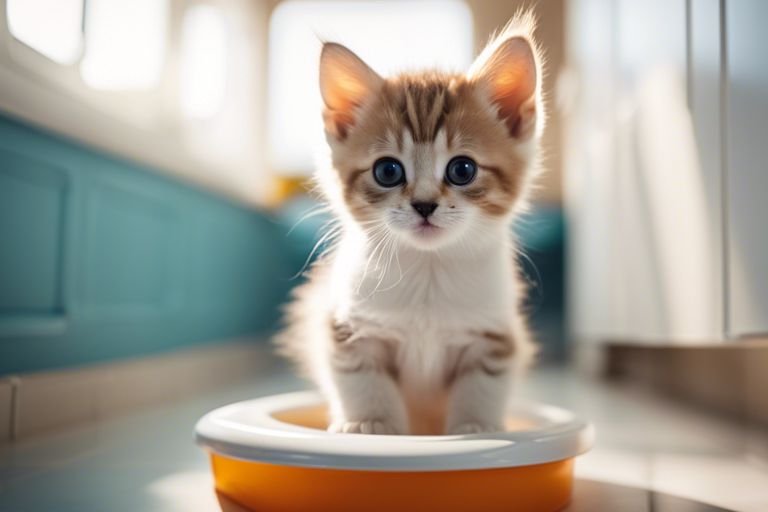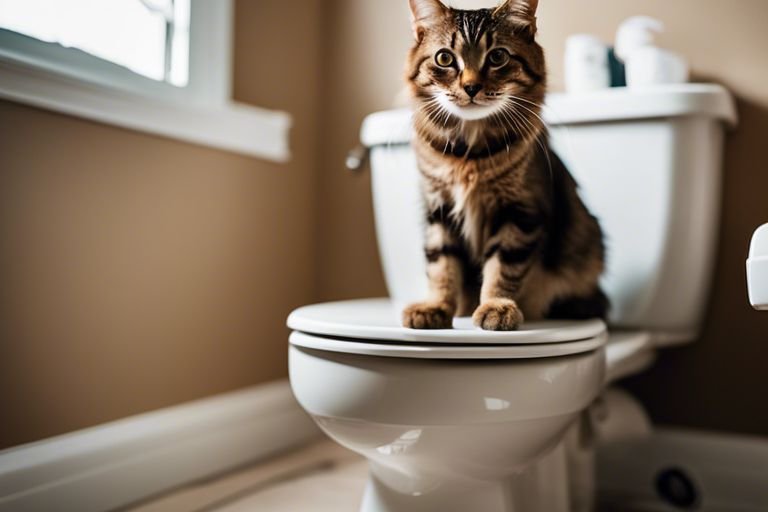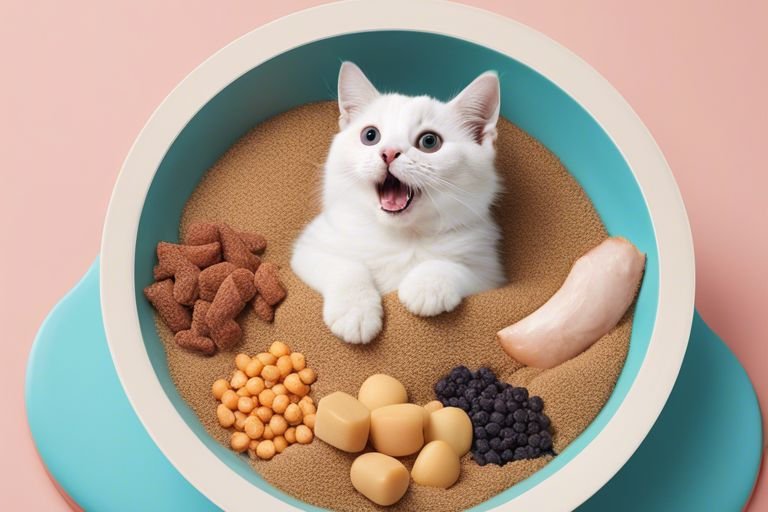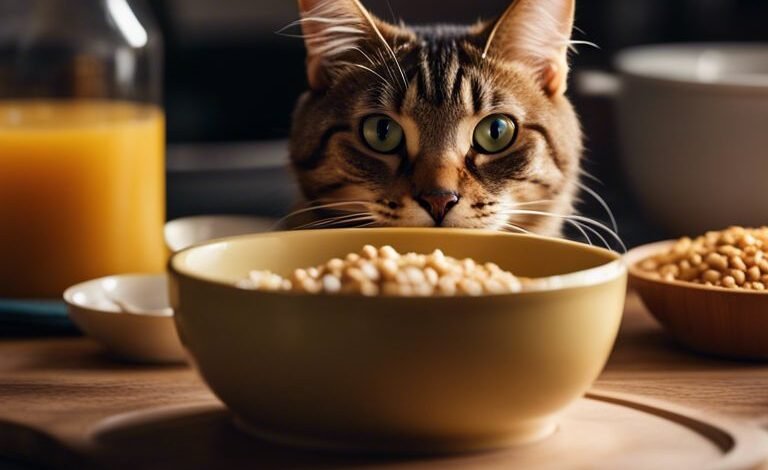
Gluten free wet cat food is crucial for cats with food sensitivities, and you may not even realize that your feline friend could be suffering from discomfort and health issues due to their diet. In this informative post, we will explore why this specialized diet is essential for sensitive cats. By understanding the benefits of gluten free wet cat food, you can provide your beloved pet with the best care possible, ensuring their overall well-being and happiness.
Key Takeaways:
- Gluten Free Wet Cat Food: Cats with food sensitivities often benefit from a gluten-free diet to avoid triggering allergic reactions.
- Digestibility: Wet cat food is easier for cats to digest compared to dry food, which can be especially beneficial for those with food sensitivities.
- Nutritional Value: Gluten free wet cat food can still provide all the necessary nutrients and vitamins that cats need to thrive and stay healthy.
- Hydration: Wet cat food has a higher moisture content, helping cats stay hydrated, which is important for overall health, especially for cats with sensitivities.
- Taste and Variety: Gluten free wet cat food comes in a variety of flavors, textures, and protein sources, making it easier to find options that your sensitive cat will enjoy.
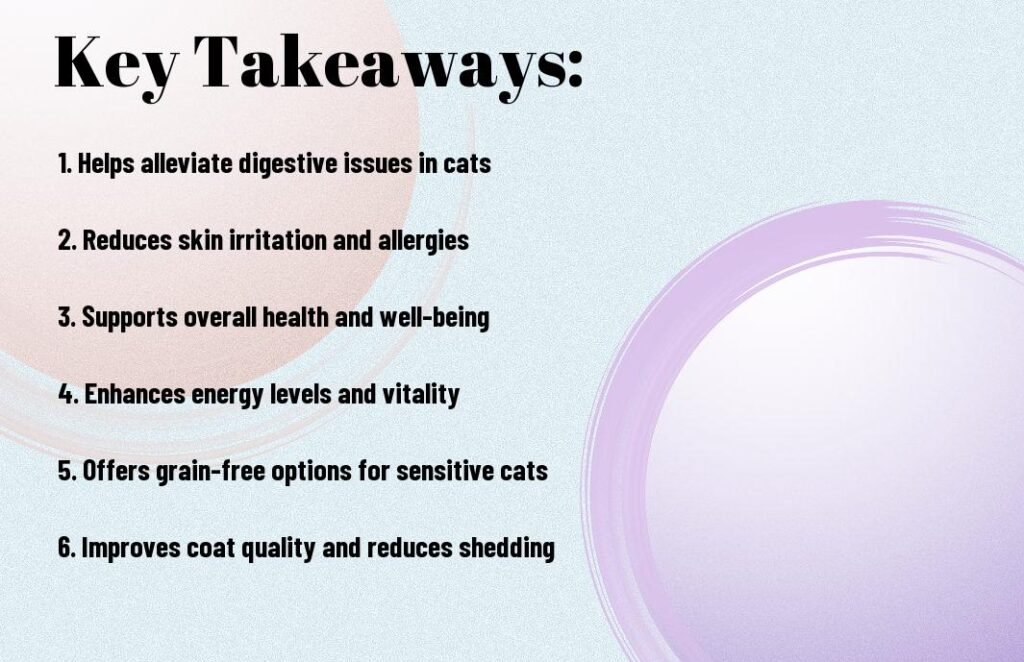
The Prevalence of Food Sensitivities in Cats
Around 10% of the feline population suffers from food sensitivities, making it a common issue that many cat owners have to deal with. Food sensitivities can manifest in various ways, affecting your cat’s overall health and well-being. It’s crucial to understand the prevalence of food sensitivities in cats to provide them with the best care possible.
Common Food Allergens Affecting Cats
One common misconception is that cats are only allergic to fish. While fish is indeed a common allergen, cats can also develop sensitivities to other proteins like beef, dairy, and chicken. Grains such as wheat and corn are also known to trigger food sensitivities in some cats. By identifying and eliminating these common allergens from your cat’s diet, you can help alleviate their symptoms and improve their quality of life.
Symptoms of Food Sensitivities in Felines
For cats with food sensitivities, the symptoms can vary widely and may include skin issues like itching, redness, or hair loss, gastrointestinal problems such as vomiting or diarrhea, and even respiratory issues like sneezing or coughing. If you notice any of these symptoms in your cat, it’s crucial to consult your veterinarian to determine if food sensitivities could be the underlying cause.
A cat with food sensitivities may also experience chronic ear infections, excessive grooming leading to hairballs, or even behavioral changes like aggression or lethargy. These subtle signs can often be overlooked, but they are crucial indicators that your cat’s diet may be causing them distress. By being aware of these symptoms, you can take proactive steps to address your cat’s food sensitivities and ensure they lead a healthy and happy life.
The Role of Gluten in Feline Nutrition
Little is known about the effects of gluten on feline nutrition, but it’s imperative to understand how it can impact your cat’s overall health. If your cat suffers from food sensitivities, grains like wheat, barley, and rye could be the culprit. According to Grain-Free Cat Food and Allergies: How it Can Help, eliminating gluten from your cat’s diet may alleviate digestive issues and improve their overall well-being.
What is Gluten and How Does it Affect Cats?
The presence of gluten in your cat’s food can trigger allergic reactions and food sensitivities, leading to symptoms like vomiting, diarrhea, and skin problems. Gluten is a protein composite found in grains that some cats have difficulty digesting. By switching to a gluten free wet cat food, you can help alleviate these issues and ensure your cat is getting the nutrition they need without any potential allergens.
The Impact of Gluten on Feline Digestive Health
Nutrition plays a crucial role in maintaining your cat’s digestive health, and gluten can disrupt this delicate balance. When cats struggle to digest gluten, it can lead to inflammation in the gut, causing discomfort and digestive issues. By opting for a gluten free wet cat food, you can support your cat’s digestive system and promote optimal gut health.
Does your cat suffer from digestive issues or food sensitivities? Choosing a gluten free wet cat food can make a significant difference in their overall health and well-being. By eliminating potential allergens like gluten from their diet, you can help your cat thrive and enjoy a happy, healthy life.
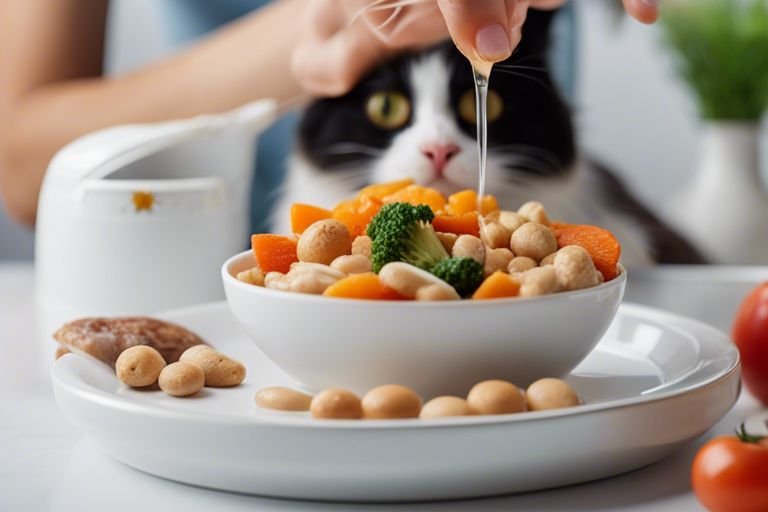
The Benefits of Gluten Free Wet Cat Food
Improved Digestive Health
Gluten free wet cat food can be incredibly beneficial for your feline friend’s digestive health. By eliminating gluten from your cat’s diet, you reduce the risk of digestive issues such as bloating, gas, and diarrhea. This can lead to a happier and healthier cat overall.
Reduced Inflammation and Allergy Symptoms
Benefits of feeding your cat gluten-free wet food extend to reducing inflammation and allergy symptoms. Gluten is a common allergen for cats, which can lead to skin irritations, itching, and gastrointestinal problems. By switching to a gluten-free diet, you may notice a significant improvement in your cat’s overall well-being.
Reduced inflammation can also help alleviate joint pain and stiffness, especially in older cats. With the elimination of gluten, your cat may experience increased energy levels and a shinier coat, indicating a healthier immune system and reduced allergic reactions.
Enhanced Nutrient Absorption
Choosing gluten free wet cat food can enhance your cat’s nutrient absorption. Gluten can interfere with the body’s ability to absorb crucial nutrients, leading to deficiencies over time. By opting for a gluten-free diet, you ensure that your cat is getting the maximum nutritional benefits from their food, leading to improved overall health and vitality.
To provide the best care for your feline companion, consider the numerous benefits of gluten free wet cat food, from improved digestive health to reduced inflammation and enhanced nutrient absorption. Your cat will thank you for making this simple yet impactful dietary change.
Choosing the Right Gluten Wet Cat Food
Despite the growing options for gluten free wet cat food, it can still be overwhelming to choose the right one for your feline friend. To ensure you are providing a nutritious and safe diet for your cat, there are key factors to consider when selecting gluten free wet cat food.
Key Ingredients to Look For
One of the necessary aspects to consider when choosing gluten free wet cat food is the ingredients list. Look for high-quality protein sources like real meat or fish as the first ingredient. These proteins are necessary for your cat’s overall health and wellbeing. Additionally, ingredients like fruits and vegetables can provide necessary vitamins and minerals, enhancing the nutritional value of the food.
Avoiding Fillers and By-Products
Choosing gluten free wet cat food means avoiding unnecessary fillers and by-products. Fillers like corn, wheat, and soy offer little to no nutritional value for your cat and can trigger sensitivities. By-products are lower quality ingredients that may not provide the necessary nutrients your cat needs. When choosing a gluten free wet cat food, opt for options that are free from these ingredients to ensure your cat is getting a balanced and wholesome diet. Choosing a gluten free wet cat food free from fillers and by-products can benefit your cat’s digestion and overall health. Fillers and by-products have little nutritional value and can lead to digestive issues or food sensitivities in your cat. By selecting a high-quality gluten free wet cat food, you can help support your cat’s optimal health and well-being.
Reading Labels and Certifications
Another important aspect of choosing the right gluten free wet cat food is reading labels and certifications. Look for foods that are certified gluten-free to ensure they meet the necessary standards for your cat’s dietary needs. Additionally, familiarize yourself with common pet food certifications to ensure you are selecting a reputable and trustworthy option for your cat. One key aspect to pay attention to when reading labels and certifications is the presence of fillers and by-products. These ingredients can be listed under different names, so it’s necessary to be aware of potential additives that may not be suitable for your cat. By carefully reviewing labels and certifications, you can make an informed decision about the best gluten free wet cat food for your feline companion.
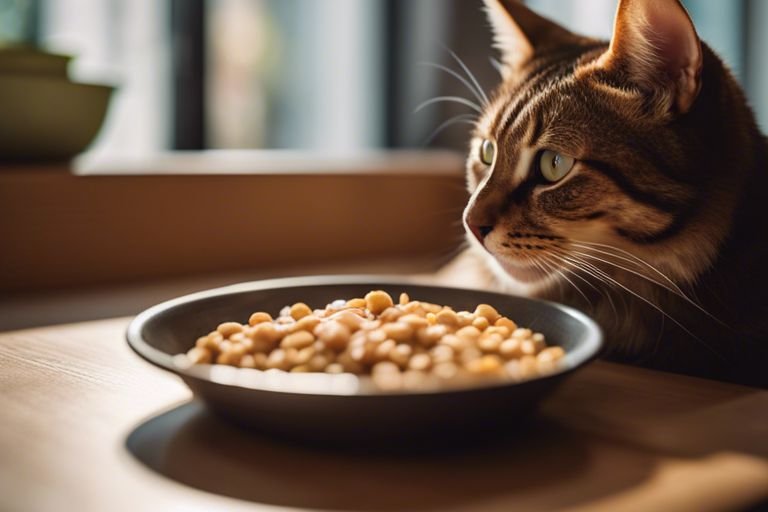
The Importance of Moisture in Feline Diets
Hydration and Urinary Health
Your feline friend’s diet plays a crucial role in maintaining proper hydration levels. Cats are naturally low thirst drinkers, stemming from their desert-dwelling ancestors’ ability to obtain moisture from prey. Therefore, it’s necessary to provide your cat with wet food that contains a high moisture content. Adequate moisture intake is vital for urinary health, as it helps prevent issues such as urinary tract infections and kidney disease.
Skin and Coat Health
Feline skin and coat health are directly linked to the moisture levels in their diet. Cats with food sensitivities are more prone to skin issues like dryness, itchiness, and excessive shedding. By feeding your cat gluten-free wet food, you are not only addressing their dietary sensitivities but also improving their skin and coat condition.
For instance, a diet rich in moisture from wet food can help reduce skin dryness and itchiness, leading to a shinier coat and healthier skin overall.
Overall Health and Well-being
To ensure your cat’s overall health and well-being, incorporating gluten-free wet food into their diet is paramount. Wet food not only aids in hydration but also provides necessary nutrients like protein and vitamins that are crucial for your cat’s development and immune system. A balanced diet that includes moisture-rich wet food can contribute to your cat’s longevity and quality of life.
Plus, the higher moisture content in wet food can help prevent issues like obesity and diabetes, common in cats with food sensitivities.
Common Misconceptions About Gluten-Free Diets
Debunking the Myth of Gluten-Free Diets Being Expensive
Not all gluten-free diets are expensive. While some specialty gluten-free products may come at a higher price point, there are plenty of naturally gluten-free foods that are affordable and nutritious. You can find budget-friendly options such as rice, quinoa, fruits, vegetables, lean meats, and legumes that are not only gluten-free but also provide vital nutrients for your cat.
Addressing Concerns About Nutrient Deficiencies
An important concern some people have about gluten-free diets is the potential for nutrient deficiencies. One common misconception is that eliminating gluten from your cat’s diet may lead to inadequate intake of vital nutrients. However, with proper planning and by selecting high-quality gluten free wet cat food formulated to meet your cat’s nutritional needs, you can ensure that your cat receives all the necessary nutrients for optimal health.
One factor to consider in gluten-free diets for cats is the addition of nutrient supplements or fortified foods. It’s crucial to check the ingredients list of gluten free wet cat food to ensure it contains vital vitamins, minerals, and other nutrients necessary for your cat’s well-being.
Separating Fact from Fiction
Diets that exclude gluten are not inherently lacking in nutrients. Gluten-free diets can be as balanced and nutritious as diets that include gluten-containing ingredients. It’s vital to focus on providing a well-rounded diet for your cat, regardless of whether it’s gluten-free or not. By selecting a high-quality gluten free wet cat food that meets your cat’s dietary requirements, you can ensure your cat gets the nutrients it needs without any compromise.
Deficiencies
When considering a gluten-free diet for your cat, it’s vital to note that nutrient deficiencies are not specific to this type of diet. Any diet, if not properly balanced, can lead to nutrient deficiencies. By consulting with your veterinarian and choosing a reputable gluten free wet cat food brand, you can address any concerns about potential deficiencies and offer your cat a wholesome and nourishing diet.
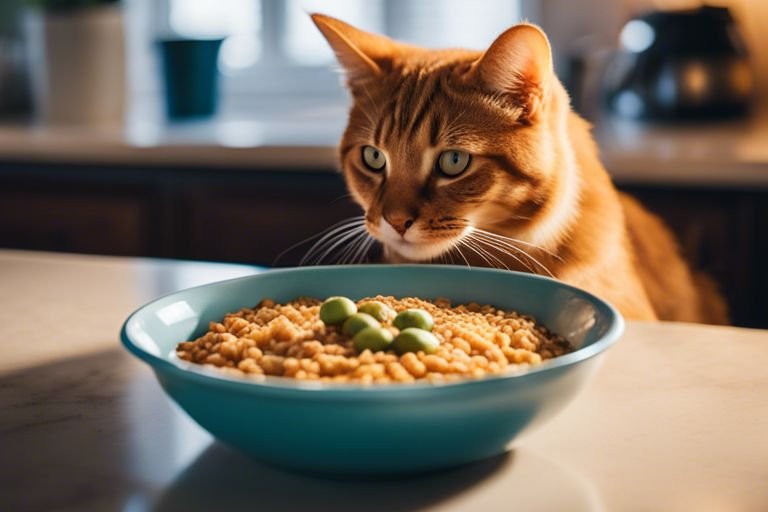
Conclusion
So, if your cat has food sensitivities, it is necessary to consider switching to gluten free wet cat food. By eliminating gluten from their diet, you can help alleviate any digestive issues and discomfort they may be experiencing. This type of cat food provides a healthier alternative that is easier for sensitive stomachs to digest, ultimately leading to a happier and healthier feline companion.
Keep in mind, every cat is unique, and what works for one may not work for another. It is crucial to consult with your veterinarian to determine the best course of action for your cat’s dietary needs. With the right gluten free wet cat food, you can provide your furry friend with the nutrition they need while avoiding ingredients that may trigger sensitivities. Your cat will thank you for it with their improved health and well-being.
FAQ
Q: Why is gluten free wet cat food crucial for cats with food sensitivities?
A: Cats with food sensitivities often have difficulty digesting gluten, a protein found in many grains. Feeding them gluten free wet cat food can help alleviate digestive issues and promote overall health.
Q: What are the benefits of feeding cats with food sensitivities gluten free wet cat food?
A: Gluten free wet cat food can help reduce inflammation, improve skin and coat health, boost energy levels, and support a strong immune system in cats with food sensitivities.
Q: How can I tell if my cat has food sensitivities and needs gluten free wet cat food?
A: Common signs of food sensitivities in cats include vomiting, diarrhea, skin rashes, excessive itching, and ear infections. If you suspect your cat has food sensitivities, consult with your veterinarian for proper diagnosis and guidance on transitioning to gluten free wet cat food.
Q: Are all wet cat foods gluten-free?
A: No, not all wet cat foods are gluten-free. Some may contain grains or gluten sources that can trigger food sensitivities in cats. It’s crucial to carefully read the labels and choose a high-quality gluten free wet cat food for your furry friend.
Q: Can I switch my cat to gluten free wet cat food if it doesn't have food sensitivities?
A: While gluten free wet cat food is beneficial for cats with food sensitivities, there is no harm in feeding it to cats without sensitivities. It can still provide crucial nutrients and support overall health for all cats, making it a good choice for your feline companion.
